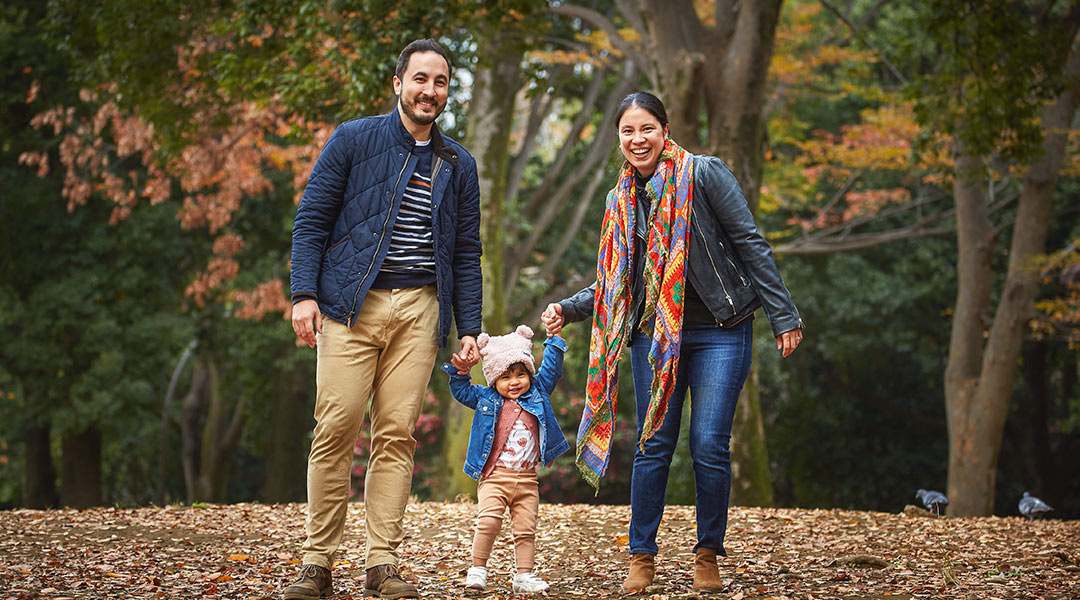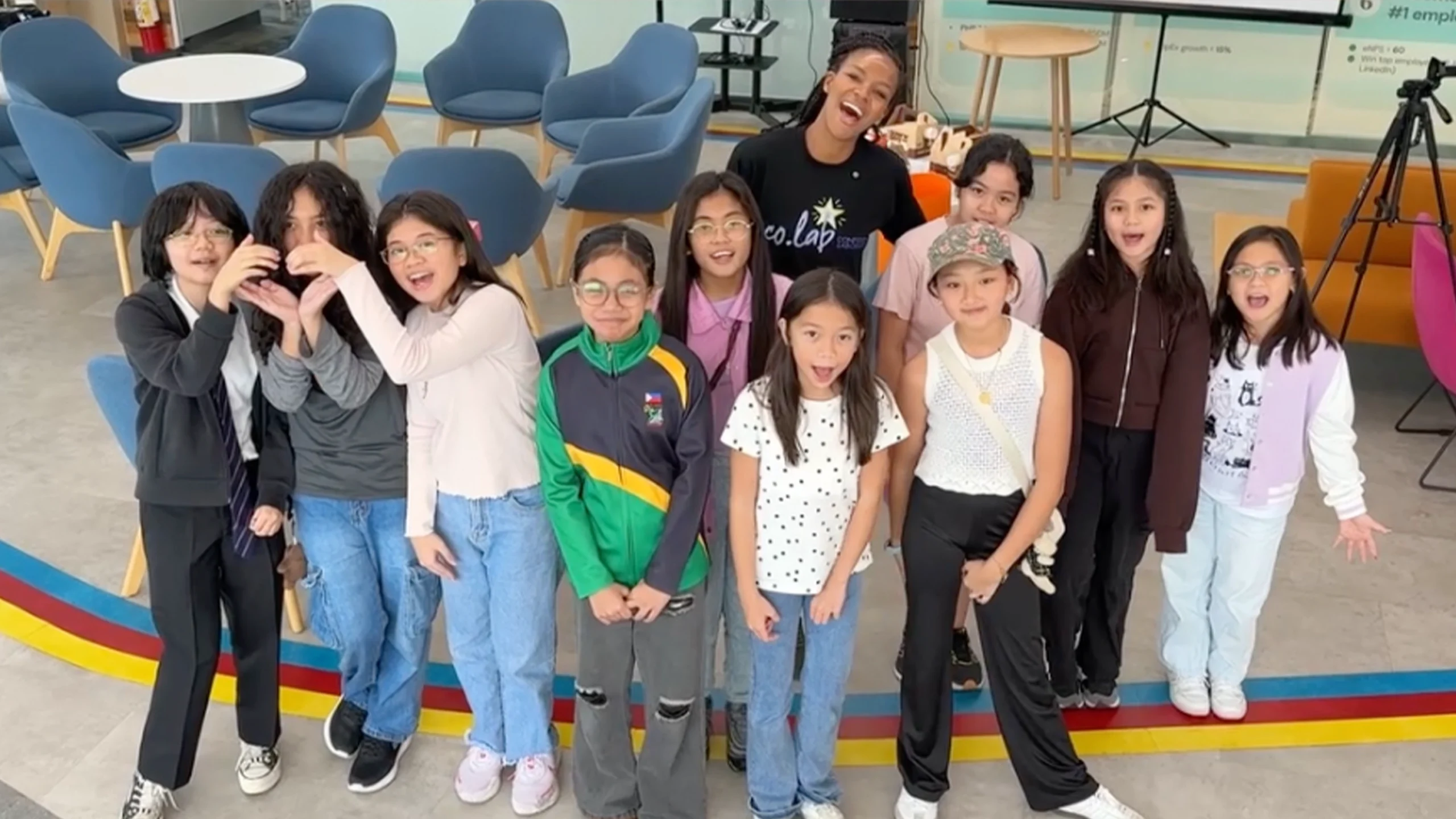Life in Tokyo: Isabel Cang on Raising a Toddler in Japan
Isabel Cang gives a glimpse of her family life in Tokyo as she raises a two-year-old while currently expecting her second child.
The Japanese way of disciplining, or shitsuke, roughly translates into training or upbringing. It’s an interesting aspect of parenting, especially for many of us Filipinos who watched ‘Old Enough‘ on Netflix. In the show, Japanese children as young as two years old would run errands for their parents. It brought to light the Japanese’s unique parenting style, which we are fortunate enough to see in the eyes of Isabel Cang, a Filipina currently based in Tokyo where she works in the luxury hotel industry.
Isabel is no stranger to different cultures. Though she was born and raised in Manila, she has lived in Hong Kong and Madrid throughout various periods of her life. “I have a two-year-old daughter Olivia. And my husband Mike and I are expecting our second baby in February 2023! Fun Fact: Mike and I have actually known each other since we were kids, having grown up together with our families in Hong Kong in the early ‘90s. We later reconnected when he was living in London and I was finishing my MBA in Spain. As they say, the rest is history!”
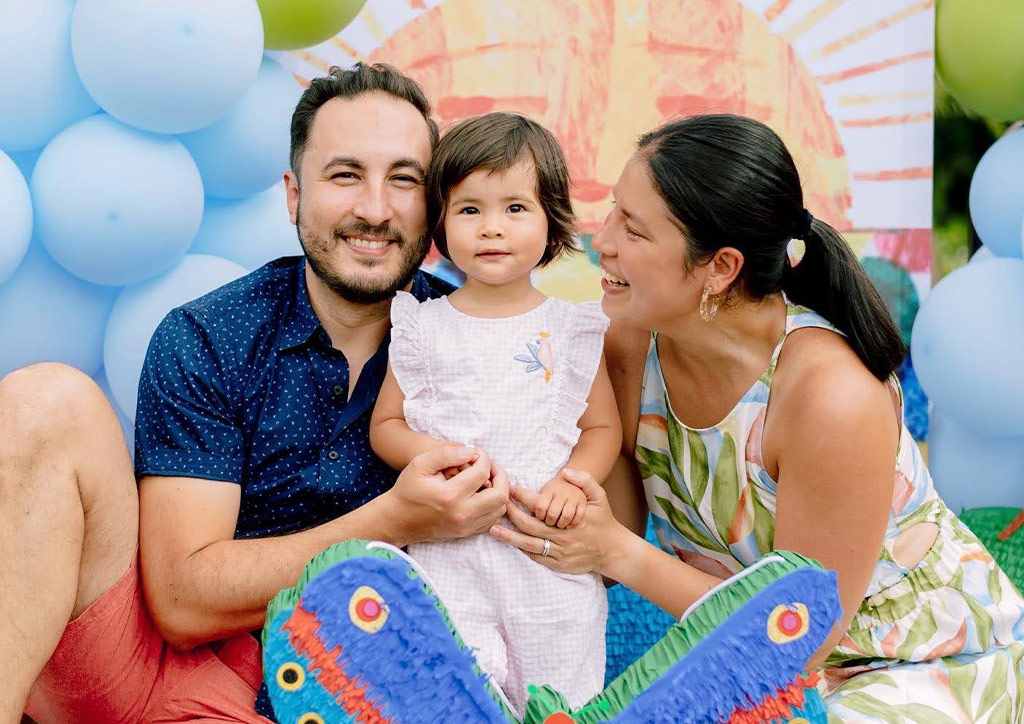
Isabel Cang on moving to Tokyo
Isabel moved to Tokyo in late 2016 after finishing her Master’s Degree in Madrid. “It was definitely intimidating because prior to moving to Japan, I had never stepped foot in the country before. I also moved here not knowing the language or having any Japanese friends. But I was very excited to be in a new environment and to immerse myself in Japan’s rich culture and traditions. I initially thought I’d be here for just a few short years. Yet six years later, I’m still here and loving it!”
Moreover, she shares her favorite things about living in Japan. “Japan is already such a wonderful country on its own—with a fascinating culture and so much history. From the incredible Japanese food to beautiful temples and shrines, traditional craftsmanship, and unique experiences—like tea ceremonies and seasonal festivals.”
“Having a child in Japan really made me appreciate the country even more. Tokyo, in particular, despite it being a mega city, is extremely clean and safe. And there are so many public parks and museums to take children to. The public transport system is one of the best in the world, too. And I love that we can easily hop on a train to explore nearby regions or visit the beach or mountains. This is also a country where you see your taxes being put to good use—with an excellent public healthcare system and great welfare benefits for families raising kids.”
On raising a toddler in another country
Raising a toddler already has its own set of challenges. But raising a toddler in another country is both rewarding and challenging for Isabel Cang. “I really believe that children are shaped by experiences. So I am grateful that Olivia gets to experience so many amazing facets of Japanese culture, as well as make friends from all walks of life and with different backgrounds. While we don’t intend on living in Japan for the very long term, I do hope that our time here will help her embrace diversity, be able to adapt to change quickly, and be more empathetic to other cultures.”
“I also think it’s a challenge. Because as parents who are not from Japan, it is our responsibility to make sure that she always has a sense of belonging in society, and is able to still feel grounded and rooted in our family values despite being surrounded by people with beliefs, traditions, and experiences that may be different from our own.”
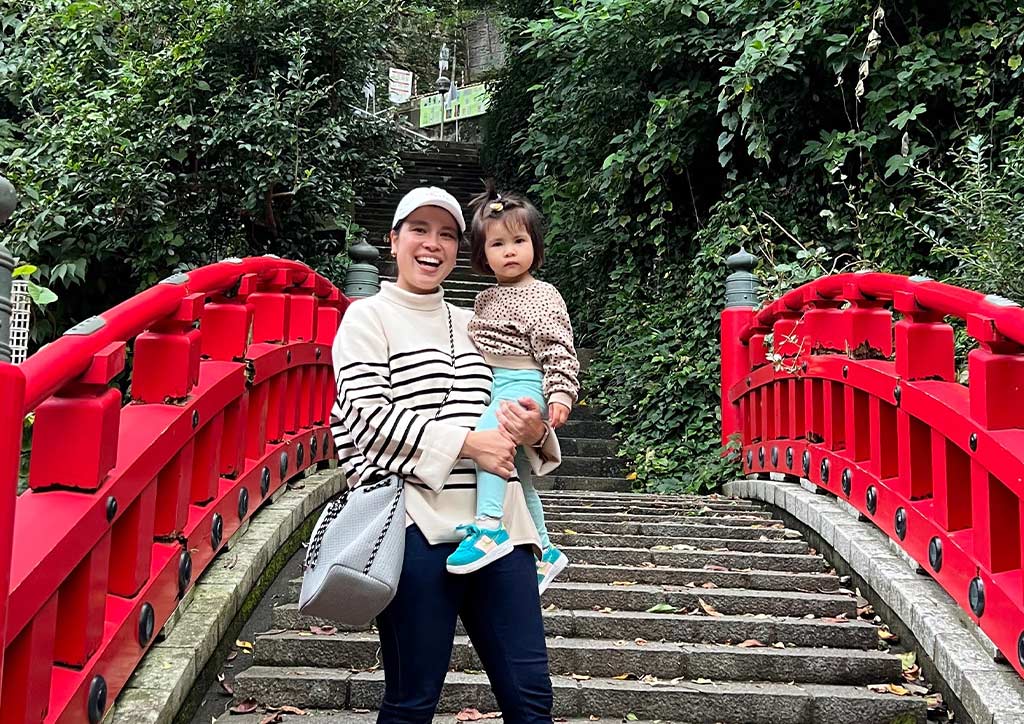
On being far away from family
Isabel grew up in a very tight-knit family and is incredibly close to her parents and siblings. “Being away from family and raising a toddler away from them has not been the easiest,” she confesses.
“The biggest challenge is definitely not being able to rely on family support when you need it the most. Olivia was born at the height of the pandemic. So I was devastated that we could not have any family members visit us during her birth. It was tough to navigate new parenthood without our usual pillars of strength. But we survived with lots of FaceTime calls. Another challenge is not being able to celebrate milestones and special occasions with family. But we have found creative ways on how to still make holidays and birthdays special despite being away from family. Fortunately, Japan is just under four hours from Manila by plane. So now that borders have opened up, we try and fly home whenever possible.”
On fusing both Japanese and Filipino values
Isabel admires many values from Japan—one of which is the concept of group harmony and cooperation in playgroups and throughout the education system. “This puts empathy at the core of Japanese culture. From a young age, kids here begin to soak in the importance of considering the feelings of others, and understanding how their own actions affect other people in the group. I like that this concept gives kids the sense of community and of being part of a larger fabric of something, rather than a very individualistic way of thinking.”
When it comes to Filipino values that she instills in Olivia, it’s definitely that of family and togetherness. “My husband and I make it a point to always sit down for meals together as a family, no matter our busy work schedules. Weekends and holidays are sacred for our family. We use the time as a chance to bond with Olivia and experience new things together. We also believe in the importance of passing on family traditions. So we have enjoyed introducing Olivia to various customs and traditions for holidays like Christmas, New Year’s, Easter, etc.”
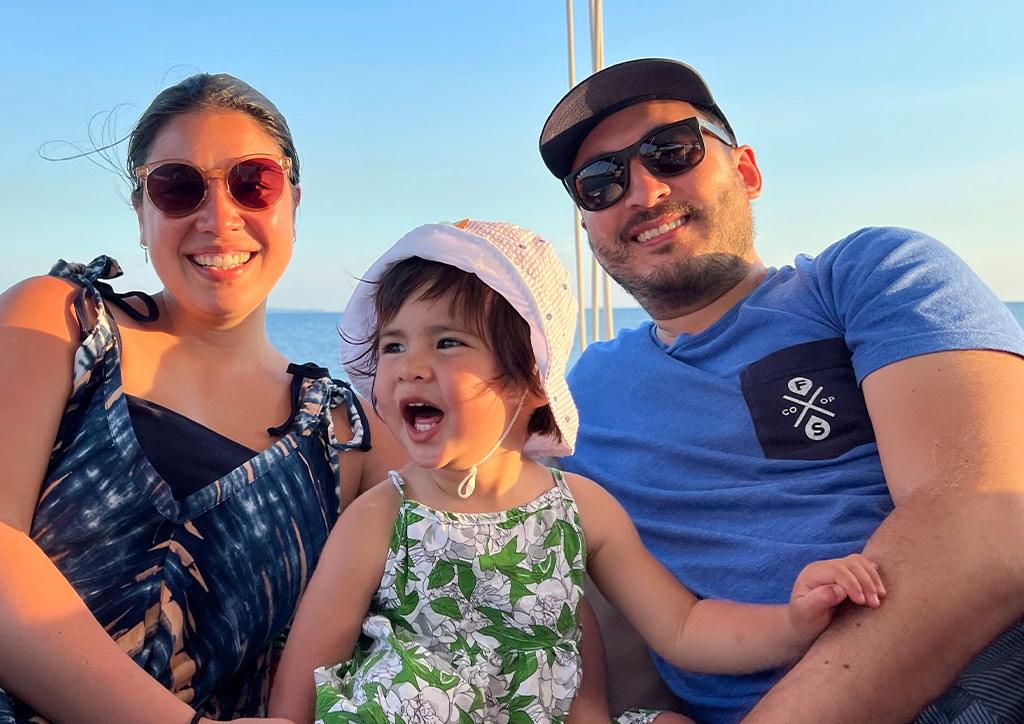
A day in the life of Isabel Cang and her family
“Mike and I both work full time. So Olivia goes to a daycare near our home while we are at work during the week. I usually pick her up around mid-afternoon. Then we visit a park before heading home to prepare for the evening.”
“Weekends are meant for fun and play. And depending on the weather, we would either meet with friends for a picnic in the park, go to our local farmer’s market, or visit a museum. Olivia is currently obsessed with Japan’s shinkansen bullet trains. So we plan on taking her to the Tokyo Train Museum soon. Sometimes, we visit a new neighborhood or nearby town to explore their local food scene. Recently, Olivia has been taking ‘baby ballet’ classes so that has also been keeping us busy on Saturday mornings!”
On sharing the load in parenting
Isabel is proud to tell Modern Parenting that her and her husband Mike’s responsibilities as parents are equally shared. “We are both equally hands-on and invested in the life and activities of Olivia. Mike always drops Olivia off at her daycare and I pick her up. On any given day, we take turns making meals for the family. Without typical household help like in the Philippines, we share various chore duties. From cleaning, doing laundry, taking out the trash, and stocking up on grocery items. I am very grateful that our generation as a whole has a keen awareness of and support for gender equality both at work and at home.”
When it comes to their parenting style, Isabel believes they are responsive. “When we interact with Olivia, we make it a point to understand her feelings and emotions. So that we know how to react appropriately to different scenarios. I think it is important to acknowledge that children, just like adults, have individual developmental and temperamental needs. So we need to be sensitive to those needs and support our kids and provide encouragement when they need it the most. In a way, we also hope that being attuned to her feelings will help Olivia grow up to be more self-confident and self-aware.”
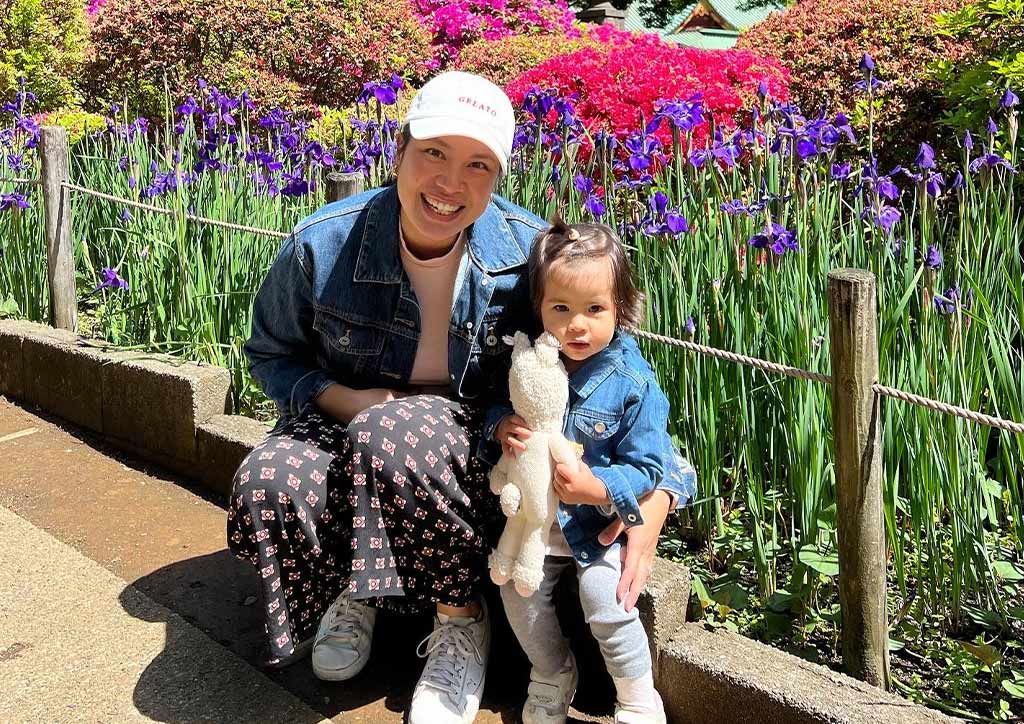
Isabel Cang on empowering her little girl
Isabel admits that she is still learning as a mother as she goes along. But she shares a few things she has taken to heart from some of the most important people in her life. “Especially my own parents,” she emphasizes. “I have to thank them for raising me and my siblings to be strong and empowered individuals.”
1. Teach your children the values of respect, love, and equality
“I think something that is shared across all cultures and backgrounds is the desire to live our lives in dignity and respect. I think that right from birth, we need to make sure our children are being nurtured with love, raised with care and decency, and brought up at the equality line. So that no matter if they are boys or girls, they grow up knowing they have equal access to life’s great opportunities.”
2. “One of my favorite sayings from a former mentor: ‘Some people say there is light at the end of the tunnel; I say, get in that tunnel and light it yourself.'”
“As parents, we need to ensure that we believe in our kids. So they, in turn, believe in themselves, believe that they can do BIG things and can make a positive impact in their own communities. I always think to myself—what sort of ‘tools’ can I pass on to Olivia now to help her later on to discover her passions? And what particular skills would she need in the future that would ultimately help her on her path to being all that she aspires to be?”
3. The power of listening
“Throughout their life, so many people will tell your child to speak up, use their voice, and express their opinions. But as parents, I think that it is equally important to instill in our kids the power of listening—seeking understanding and showing compassion. Listening is not being passive, but it helps build deeper relationships and greater trust.”
4. The true meaning of “success”
“Our children are such keen observers. So as parents, we need to be constantly modeling the kind of behavior we wish to instill in them. Our kids need to see that our own self-worth comes not from outer appearances or societal definitions of success. But from our core values, our passions, our purpose, our vision, and our hope for today, tomorrow, and their future.”
Liked this story on Isabel Cang? Find more inspiring stories of other moms:
Tyzia and Tiffany Mathay of Oh Na Na: A Bright and Colorful Motherhood
Kyla Olives Laurel: Telling Stories Through Colorful Brands
ICYMI: Gentle Parenting with Andi Manzano-Reyes and Gretchen Gatan Fragada
